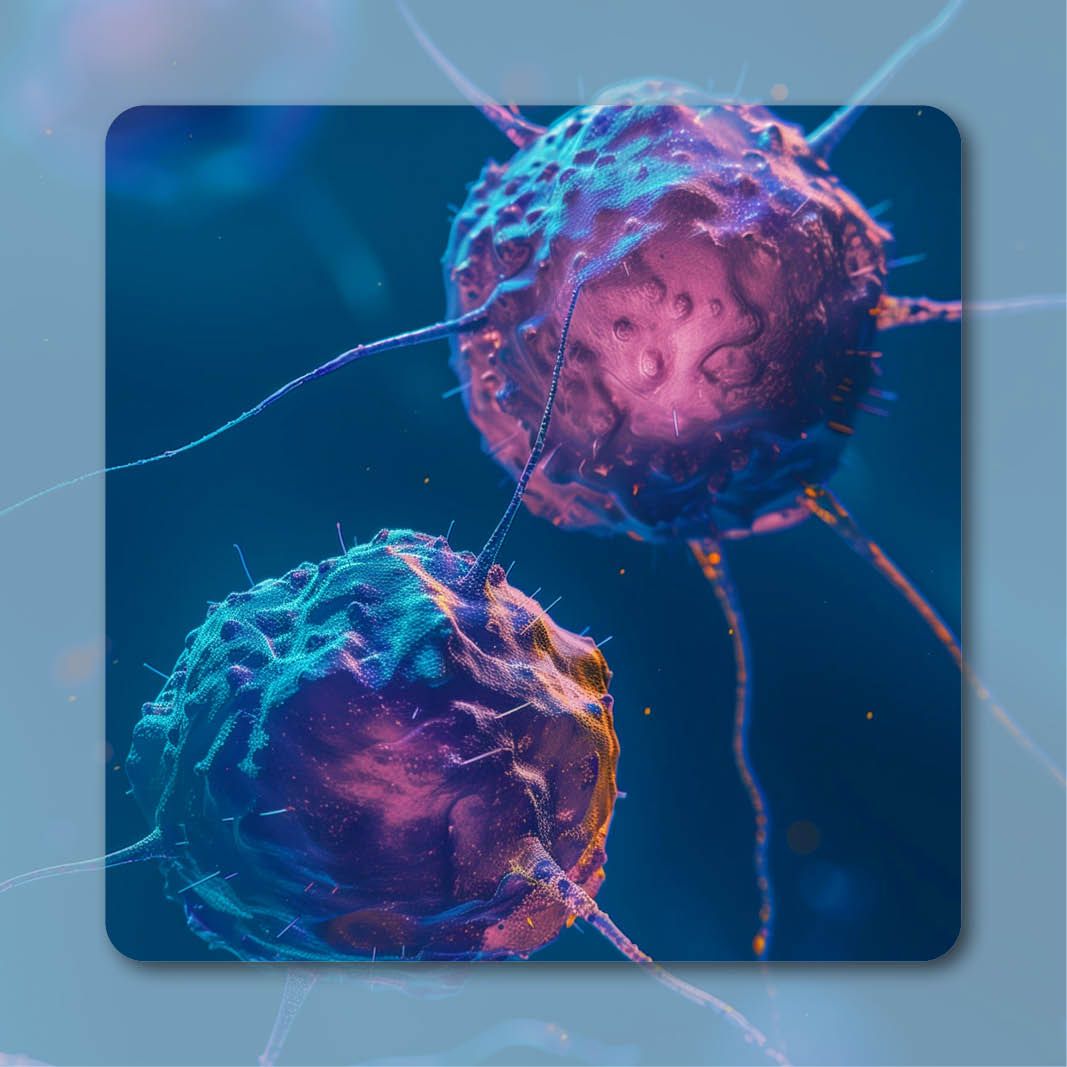Article
The Rapidly Changing Landscape in RCC Therapy: What Future Research May Hold
Author(s):
The poor long-term survival outcomes for patients with advanced renal cell carcinoma have prompted intensive clinical research aimed at developing novel therapeutic options addressing unmet needs.
Bradley Carthon, MD, PhD

Bradley Carthon, MD, PhD
Assistant Professor
Department of Hematology and Medical Oncology
Emory University School of Medicine
Approximately 43,000 cases of kidney cancer in men and 23,000 cases in women will occur in the United States in 2018.1 Almost 90% of those cases will be renal cell carcinoma (RCC), generally affecting individuals between the ages of 50 and 70.1,2 There are varying histologies that make up RCC, with clear cell histology being the most common, accounting for 70% of all cases.2 No singular cause of kidney cancer, including RCC, is known.2 However, certain risk factors have been identified, including obesity, smoking, environmental exposures and family history or genetics.2
RCC can mutate quickly, and one-third of diagnosed patients present with metastatic disease.3,4 This is due to the fact that the majority of patients are identified incidentally while undergoing workup for another issue, as the “classic” triad of symptoms—including palpable flank mass, pain and hematuria—are often absent, especially in early kidney cancer.5 These and other signs and symptoms—such as loss of appetite, fatigue and unexplained weight loss—are often attributable to other benign causes and may not trigger an immediate checkup.2
Because presentation with metastatic disease is relatively common, long-term survival outcomes for patients with advanced RCC have been poor, with 5-year survival rates of 11.7% for patients with stage IV disease.3,6 These poor outcomes have prompted intensive clinical research aimed at developing novel therapeutic options addressing unmet needs of these patients.
Current Research Focused on Advanced Disease
While there have been important advances in research around metastatic RCC, work still remains. Recent median overall survival for metastatic RCC is still less than approximately 3.5 years, even in the best prognostic groups, and survival in those patients with poor risk factors is worse, at about 7.8 months in a recent study.7 According to criteria established by the International Metastatic Renal Cell Carcinoma Database Consortium, the majority of patients fall into either the intermediate- or poor-risk category, highlighting the continued urgency to develop new approaches for this disease.8Given the unmet needs for patients with metastatic RCC, much of the research on treatment has been for this specific population. As such, molecularly targeted systemic therapies for advanced RCC have today often supplanted previously used therapies that are no longer supported by guidelines.9,10 The current research landscape may be roughly divided into 3 broad categories based on therapeutic targets: antiangiogenic agents, related molecular pathways such as the mTOR pathway, and immunotherapies—including cytokine therapy.9
Antiangiogenic agents make up the majority of metastatic RCC treatment options. Early studies of these agents utilized monoclonal antibodies against the VEGF molecule and small molecule inhibitors of the VEGF receptor.11,12 More recently, multiple oral receptor tyrosine kinase inhibitors (TKIs) with varying affinity for the VEGF receptor and other receptors have been developed.13
Another important therapeutic target, mTOR, forms complexes with other proteins that regulate various processes such as cellular growth, enhanced activity of the cell cycle, and deceased apoptosis.14 This pathway feeds back into the biologically important process of angiogenesis, inhibition of which may result in antitumor activity.14 While these agents have primarily been studied as monotherapies, there has also been recent investigation into the combination of mTOR-based agents and VEGFR inhibitors.4,14
Immunotherapy in RCC has been a therapeutic option for decades, as RCC has been well-established as an immunogenic cancer.15,16 Strategies include exploring how to activate the immune system directly and understand the processes by which cancer cells evade the immune system, which may in turn inform methods for inhibiting the suppression mechanisms of tumors.17-21 It is important to note that immunotherapy may also result in the attack of healthy cells along with cancerous cells.22
Future Directions
Modern research beyond cytokine therapy has elucidated the various immune cells—including T cells, dendritic cells and natural killer (NK) cells—within renal cell tumors.16 In patients with RCC, there is the potential for a specific antitumor immune response and susceptibility to immune attack.23 The immune system modulates the activating and repressive signals that mediate surveillance of foreign antigens and a T-cell response to tumors.24 Tumor antigen-specific T cells have been isolated in peripheral blood of patients with RCC.25,26Over the last several years, immunotherapy research has focused on inhibition of common targets within the tumor microenvironment.27 Researchers are also looking at additional activating and inhibiting signals that modulate T-cell responses. Further, investigators are exploring ways that tumor cells develop to avoid being recognized and killed by an immune response. This includes altering antigens, warding off natural killer (NK) cells through factors that suppress immunity, and alerting immune checkpoints that would otherwise recognize the tumor as a foreign body.16,28-30
Addressing these mechanisms may allow immune responses to evolve and expand by continually recognizing and recalling tumor antigens, with the potential to improve over time.31 Building upon these findings, research is now examining additional roles for immunotherapies and potentially using them in earlier lines of therapy.32,33 Combination approaches are also actively being studied in clinical trials, whether it is immunotherapy plus immunotherapy or immunotherapy combined with targeted agents.34
The explosion of data from clinical research in RCC has been exciting, but also poses new questions and prompts different approaches to research. Providing long-term survival benefits for those with advanced RCC continues to be a key objective for research, especially as incidence rates continue to rise.35 RCC research is advancing quickly, which may offer hope to patients.
However, in the face of this rapid evolution, several points should be noted. For example, what will the role of single therapeutic options be compared with combinations? How will emerging options apply in frontline and subsequent settings?
As the treatment landscape changes, so too will the design of clinical trials. Future studies should address novel single-agent and combination therapies, and determine whether reliable biomarkers or other measures exist to predict suitable patients prior to starting treatment.
Updated comparator arms should be considered in subsequent-line studies; moreover, appropriate endpoints should be a priority to guide meaningful studies.
Finally, understanding this emerging landscape is important. Informed and mutual decision-making will help ensure that patients and families have guidance on their various treatment options and the necessary support to navigate this exciting time in RCC research and therapeutic options.
This article was written by Dr. Carthon in collaboration with Bristol-Myers Squibb, which he has provided consulting and advisory services for.
References
- American Cancer Society. What are the key statistics about kidney cancer? Published August 1, 2017. https://www.cancer.org/cancer/kidney-cancer/about/key-statistics.html. Accessed March 6, 2018.
- American Cancer Society. Kidney cancer (adult) — renal cell carcinoma. ACS Kidney Cancer Detailed Guide. 2016;1-53. https://bit.ly/2Q2gaY6
- Abe H, Kamai T. Recent advances in the treatment of metastatic renal cell carcinoma. Intl J Urol. 2013;20(10):944-955. doi: 10.1111/iju.12187.
- Motzer RJ, Hutson TE, Tomczak P, et al. Sunitinib versus interferon alfa in metastatic renal-cell carcinoma. N Engl J Med. 2007;356(2):115-124. doi: 10.1056/NEJMoa065044.
- Cairns P. Renal cell carcinoma. Cancer Biomarkers. 2011;9(1-6):461-473. doi: 10.3233/CBM-2011-0176.
- National Cancer Institute. Cancer stat facts: kidney and renal pelvis cancer. https://seer.cancer.gov/statfacts/html/kidrp.html. Accessed March 16, 2018.
- Heng DY, Xie W, Regan MM, et al. External validation and comparison with other models of the Internal Metastatic Renal-Cell Carcinoma Database Consortium prognostic model: a population-based study. Lancet Oncol. 2013;14(2):141-148. doi: 10.1016/S1470-2045(12)70559-4.
- Ko JJ, Xie W, Kroeger N, et al. The International Metastatic Renal Cell Carcinoma Database Consortium model as a prognostic tool in patients with metastatic renal cell carcinoma previously treated with first-line targeted therapy: a population-based study. Lancet Oncol. 2015;16(3):293-300. doi: 10.1016/S1470-2045(14)71222-7.
- Rodriguez-Vida A, Hutson TE, Bellmunt J, et al. New treatment options for metastatic renal cell carcinoma. ESMO Open. 2017;2(2):e000185. doi:10.1136/esmoopen-2017-000185.
- . National Comprehensive Cancer Network. NCCN Clinical Practice Guidelines in Oncology (NCCN Guidelines): Kidney Cancer — NCCN Evidence Blocks. Available at: https://www.nccn.org/professionals/physician_gls/pdf/kidney_blocks.pdf. Accessed April 3, 2018.
- . Escudier B, Bellmunt J, Negrier S, et al. Phase III trial of bevacizumab plus interferon alfa-2a in patients with metastatic renal cell carcinoma (AVOREN): final analysis of overall survival. J Clin Oncol. 2010;28(13):2144-2150. doi: 10.1200/JCO.2009.26.7849.
- Escudier B, Eisen T, Stadler WM, et al. Sorafenib for treatment of renal cell carcinoma: final efficacy and safety results of the phase III treatment approaches in renal cancer global evaluation trial. J Clin Oncol. 2009;27(20):3312-8. doi: 10.1200/JCO.2008.19.5511.
- Chowdhury S, Larkin JM, Gore ME. Recent advances in the treatment of renal cell carcinoma and the role of targeted therapies. Eur J Cancer. 2008;44(15):2152-2161. doi: 10.1016/j.ejca.2008.06.028.
- Mulders P. Vascular endothelial growth factor and mTOR pathways in renal cell carcinoma: differences and synergies of two targeted mechanisms. BJU Int. 2009;104(11):1585-1589. doi: doi: 10.1111/j.1464-410X.2009.08987.x.
- Fyfe G, Fisher RI, Rosenberg SA, et al. Results of treatment of 255 patients with metastatic renal cell carcinoma who received high-dose recombinant interleukin-2 therapy. J Clin Oncol. 1995;13(3):668-696.
- Itsumi M, Tatsugami K. Immunotherapy for Renal Cell Carcinoma. Clin Dev Immunol. 2010. doi: 10.1155/2010/284581.
- Peggs KS, Quezada SA, Chambers CA, et al. Blockade of CTLA-4 on both effector and regulatory T cell compartments contributes to the antitumor activity of anti—CTLA-4 antibodies. J Exp Med. 2009;206(8):1717-1725. doi: 10.1084/jem.20082492.
- Francisco LM, Salinas VH, Brown KE, et al. PD-L1 regulates the development, maintenance, and function of induced regulatory T cells. J Exp Med. 2009;206(13):3015-3029. doi: 10.1084/jem.20090847.
- Bedke J, Kruck S, Gakis G, et al. Checkpoint modulation — a new way to direct the immune system against renal cell carcinoma. Hum Vaccin Immunother. 2015;11(5):1201-1208. doi: doi: 10.1080/21645515.2015.1016657.
- Armstrong AC, Eaton D, Ewing JC. Cellular immunotherapy for cancer. BMJ. 2001;323:1289-1293. doi: 10.1136/bmj.323.7324.1289.
- O’Day SJ, Hamid O, Urba WJ. Targeting cytotoxic t-lymphocyte antigen-4 (CTLA-4). Cancer. 2007;110(12):2614-2627.
- Amos S, Duong C, Westwood J, et al. Autoimmunity associated with immunotherapy of cancer. Blood. 2011;118:499-509. doi: 10.1182/blood-2011-01-325266.
- Kitamura H, Honma I, Torigoe T, et al. Down-regulation of HLA class I antigen is an independent prognostic factor for clear cell renal cell carcinoma. J Urol. 2007;177:1269-1272.
- Alsaab HO, Sau S, Alzhrani R, et al. PD-1 and PD-L1 checkpoint signaling inhibition for cancer immunotherapy: mechanism, combinations, and clinical outcome. Frontiers in Pharmacology. 2017;8:561. doi: 10.3389/fphar.2017.00561.
- Ménétrier-Caux C, Bain C, Favrot MC, et al. Renal cell carcinoma induces interleukin 10 and prostaglandin E2 production by monocytes. Br J Cancer. 1999;79(1):119-130.
- Pardoll DM. The blockade of immune checkpoints in cancer immunotherapy. Nat Rev Cancer. 2012;12(4):252-264. doi: 10.1038/nrc3239.
- Santarpia M, Karachaliou N. Tumor immune microenvironment characterization and response to anti-PD-1 therapy. Cancer Biol Med. 2015;12:74-78. doi: 10.7497/j.issn.2095-3941.2015.0022.
- Dörrschuck A, Schmidt A, Schnürer, et al. CD8+ cytotoxic T lymphocytes isolated from allogeneic healthy donors recognize HLA class Ia/Ib—associated renal carcinoma antigens with ubiquitous or restricted tissue expression. Blood. 2004;104(8):2591-2599.
- Thompson RH, Gillett MD, Cheville JC, et al. Costimulatory B7-H1 in renal cell carcinoma patients: Indicator of tumor aggressiveness and potential therapeutic target. Proc Natl Acad Sci USA. 2004;101(49):17174-17179.
- Iwai Y, Ishida M, Tanaka Y, et al. Involvement of PD-L1 on tumor cells in the escape from host immune system and tumor immunotherapy by PD-L1 blockade. Proc Natl Acad Sci USA. 2002;99(19):12293-12297.
- Markiewicz MA, Fallarino F, Ashikari A, Gajewski TF. Epitope spreading upon P815 tumor rejection triggered by vaccination with the single class I MHC-restricted peptide P1A. Int Immunol. 2001;13(5):625-632.
- Postow MA, Callahan MK, Wolchok JD. Immune checkpoint blockade in cancer therapy. Journal of Clinical Oncology. 2015;33(17):1974-1982. doi: 10.1200/JCO.2014.59.4358.
- Carlo MI, Voss MH, Motzer RJ. Checkpoint inhibitors and other novel immunotherapies for advanced renal cell carcinoma. Nat Rev Urol. 2016;13(7):420-431. doi: 10.1038/nrurol.2016.103.
- Cho YH, Kim MS, Chung HS, Hwang EC. Novel immunotherapy in metastatic renal cell carcinoma. Investig Clin Urol. 2017;58(4):220-227. doi: 10.4111/icu.2017.58.4.220.
- King S, Pollack LA, Li J, et al. Continued increase in incidence of renal cell carcinoma, especially in young, patients and high grade disease: United States 2001 to 2010. J Urol. 2014:191(6):1665-1670. doi: 2013.12.046.









